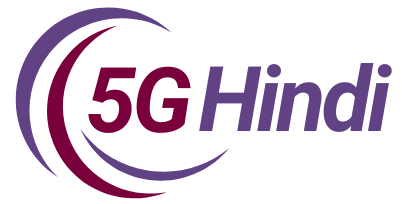Are you ready to conquer your academic goals in 2025? 📚 The key to success isn’t just about working harder; it’s about working smarter. This article will reveal 10 essential study hacks that will transform your learning process, boost your grades, and help you achieve your academic potential. We’ll be looking at time management strategies, powerful learning techniques, and productivity boosters, giving you a comprehensive guide to effective studying in the year ahead. Get ready to optimize your study sessions and ace those exams! These tips use techniques like active recall, spaced repetition and the pomodoro technique to make your study sessions more efficient.
Table of Contents
🗓️ Time Mastery: Organizing Your Study Schedule
Effective time management is crucial for any student. Juggling classes, assignments, extracurriculars, and a social life can be overwhelming. But don’t worry; with a few clever strategies, you can take control of your schedule and make the most of your time.
✍️ The Power of Planning: Creating a Study Timetable
A study timetable isn’t just about allocating time; it’s about creating a roadmap for your academic success. Start by noting down all your commitments: classes, work, extracurricular activities, and social events. Then, block out specific times for study. Be realistic about how much time you can dedicate to each subject, and don’t forget to schedule in breaks! ⏱️ A well-planned timetable ensures that you cover all your subjects adequately, prevents cramming, and reduces stress. Consider using a digital calendar or planner to help manage your time.
🎯 Setting SMART Goals: Stay Focused & Motivated
Setting goals keeps you on track and motivated. Instead of vaguely aiming to “study more,” create SMART goals:
- Specific: What exactly do you want to achieve? For example, instead of “review history,” aim for “review Chapter 3 of the history textbook.”
- Measurable: How will you know if you’ve reached your goal? Quantify your progress with something like “complete 20 practice math questions” or “summarize one chapter of the textbook”.
- Achievable: Is your goal realistic given your workload and other commitments? Don’t set yourself up for failure.
- Relevant: Does the goal align with your overall academic objectives?
- Time-bound: Set a deadline for when you want to achieve the goal.
By setting SMART goals, you’ll make your study sessions more focused and efficient, allowing you to progress towards your academic objectives.
🧠 Turbocharge Your Learning: Effective Study Techniques
Studying isn’t about passively re-reading notes; it’s about engaging actively with the material. Let’s dive into some research-backed learning techniques that will help you understand and retain information more effectively.
💡 Active Recall: The Key to Retention
Active recall is a powerful study technique where you actively retrieve information from your memory, rather than passively re-reading or reviewing. This is more effective than simply trying to memorize the material. Here are some ways to implement it:
- Practice Questions: Test yourself with practice questions or flashcards after studying a topic.
- Explain it Out Loud: Try to explain the concepts in your own words as if you were teaching someone else. This will reveal gaps in your knowledge that you can then address.
- Summarize from Memory: After reading a section of the text, close the book and try to summarize it in writing from memory.
This method helps you remember information better because it strengthens the neural pathways associated with that knowledge. This technique, also called retrieval practice, shifts your focus from trying to store information to retrieving it, leading to more effective and lasting learning.
🔄 Spaced Repetition: Long-Term Learning Made Easy
Spaced repetition involves reviewing material at increasing intervals. Rather than cramming for an exam, you revisit the information at specific times, which strengthens your memory.
- Initial Review: Review new material shortly after you first learn it.
- Increasing Intervals: Review the material again after a day, then a few days, then a week, and so on.
- Revisit When Forgotten: If you forget something, review it more frequently.
Spaced repetition allows you to move information from your short-term to your long-term memory. This prevents forgetting and ensures that you’ll retain the information for longer periods of time. There are digital tools and apps that can help you implement spaced repetition efficiently, including flashcard programs.
🗣️ The Feynman Technique: Mastering Concepts Through Teaching
The Feynman Technique, named after physicist Richard Feynman, is a method for deeper understanding. It involves breaking down complex concepts into simple, digestible terms, like you’re explaining them to someone with no prior knowledge. Here’s how to use this technique:
- Choose a Concept: Select the topic you want to learn.
- Explain It Simply: Write out the explanation as if teaching it to a child.
- Identify Gaps: Highlight what parts you cannot explain clearly and return to the source material.
- Simplify Further: Continue the explanation process until you can explain the concept without jargon or confusion.
By doing this, you actively expose gaps in your comprehension, forcing you to grapple with the material in a new way. This technique pushes your brain to genuinely understand the material rather than just memorize it.
⚡️ Boost Productivity: Hacks for a Focused Study Session
It’s not enough to just study; you need to study effectively. These hacks will help you optimize your focus and productivity during study sessions.
🍅 The Pomodoro Technique: Working in Focused Bursts
The Pomodoro Technique is a popular time management method that breaks your study sessions into focused intervals, typically 25 minutes long, followed by short breaks. This method can help you overcome procrastination and improve concentration.
- Study Blocks: Work for 25 minutes.
- Short Breaks: Take a 5-minute break after each block.
- Longer Break: After every four blocks, take a longer 15-20 minute break.
The short breaks help prevent mental fatigue, and the structured time blocks keep you focused. This method is effective for both short and long study sessions.
📵 Eliminate Distractions: Create Your Study Zone
Distractions can derail your focus and productivity. Creating a dedicated study zone free from distractions is crucial for effective studying.
- Minimize Tech: Put your phone on silent, use website blockers, or store it out of sight.
- Quiet Space: Choose a quiet and well-lit space to study, such as a library or a designated study area.
- Organize: Keep your study area neat and organized to prevent distractions from clutter.
By eliminating distractions, you will be able to concentrate fully on your tasks, leading to more productive study sessions.
🧰 Tools of the Trade: Leveraging Resources for Study Success
Beyond individual techniques, there are tools and resources that can enhance your study process. Let’s see how to make the most of them.
📝 Note-Taking Strategies: From Passive to Active
Note-taking is an essential part of the learning process, and it should be active, not passive. Rather than just copying information, try these strategies:
- Summarize in Your Own Words: Paraphrase the content as you take notes instead of copying directly.
- Use Symbols and Keywords: Employ shorthand and concise keywords rather than full sentences.
- Concept Maps: Visually organize your notes to connect concepts and see relationships.
- Review Regularly: Review and expand on your notes after the session.
Active note-taking encourages deeper engagement with the material, ensuring better understanding and recall.
🤝 Study Groups: Collaborative Learning
Studying in a group provides a platform for interactive learning and different perspectives. It’s a great way to discuss and explore concepts, help each other identify areas that need more study, and keep everyone motivated.
- Discuss Concepts: Explain concepts to each other to reinforce your understanding.
- Ask Questions: Create a safe environment where you can ask questions and seek clarifications.
- Share Resources: Exchange notes and study materials to diversify your resources.
Study groups offer not just an effective way to learn, but can also be very supportive and motivating.
🏆 The Path to Academic Triumph: Mastering Your Study Habits
Mastering effective study habits is a journey, not a destination. 🚀 By implementing the 10 essential study hacks we’ve explored—from time management to active recall—you’ll transform your learning approach in 2025. Remember that everyone’s learning style is unique, so experiment with these strategies and find what works best for you. With consistent effort and a strategic approach, you’ll not only achieve academic success but also become a more efficient and confident learner. Keep learning and keep growing!

